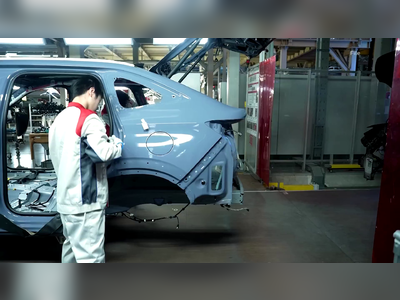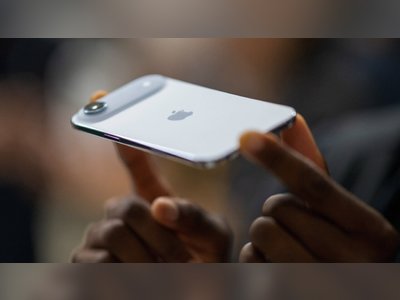
Mark Zuckerberg Announces a New Technological Revolution: AR Glasses to Replace Smartphones
Meta's CEO claims augmented reality eyewear could transform digital interaction, marking a potential end to the smartphone era.
Mark Zuckerberg, the founder and CEO of Meta, has suggested that smartphones, integral to daily life, may soon become obsolete.
He announced that augmented reality (AR) glasses could replace mobile phones in the coming years, allowing for a more natural interaction with digital content while maintaining a connection to the physical environment.
During a recent event, Zuckerberg unveiled the new device, the Meta Quest 3S, a pair of holographic glasses priced at $299.99. He described this launch as the beginning of a new era in digital interaction, which could lead to a decline in the predominance of smartphones in daily communication and activities.
Zuckerberg stated, "Phones are small, distracting, and disrupt face-to-face human contact," emphasizing that AR glasses provide a more natural, immersive, and visually rich experience.
Unlike mobile devices that require continuous attention to a screen, the Meta Quest 3S allows users to see, hear, and manage digital content while remaining engaged with their physical surroundings.
The device features direct internet connectivity, portability, and the capability to overlay virtual elements onto the real world.
The vision presented by Meta is not merely a new device but represents a significant shift in how people may communicate, access information, and utilize digital services.
The glasses could potentially assume the functionalities of current smartphones—messaging, calling, navigation, and social networking—while offering a less invasive and more flexible experience.
Zuckerberg has projected that within ten years, many users could entirely abandon their smartphones, as augmented reality glasses would cater to all their needs without requiring a handheld screen.
In light of rapid advancements in augmented reality and artificial intelligence, such devices may indeed replace traditional gadgets.
Thus, Meta is not only launching a new product but also signaling the end of one technological era and the start of another, where "lenses in the eyes will replace screens in the hands."
He announced that augmented reality (AR) glasses could replace mobile phones in the coming years, allowing for a more natural interaction with digital content while maintaining a connection to the physical environment.
During a recent event, Zuckerberg unveiled the new device, the Meta Quest 3S, a pair of holographic glasses priced at $299.99. He described this launch as the beginning of a new era in digital interaction, which could lead to a decline in the predominance of smartphones in daily communication and activities.
Zuckerberg stated, "Phones are small, distracting, and disrupt face-to-face human contact," emphasizing that AR glasses provide a more natural, immersive, and visually rich experience.
Unlike mobile devices that require continuous attention to a screen, the Meta Quest 3S allows users to see, hear, and manage digital content while remaining engaged with their physical surroundings.
The device features direct internet connectivity, portability, and the capability to overlay virtual elements onto the real world.
The vision presented by Meta is not merely a new device but represents a significant shift in how people may communicate, access information, and utilize digital services.
The glasses could potentially assume the functionalities of current smartphones—messaging, calling, navigation, and social networking—while offering a less invasive and more flexible experience.
Zuckerberg has projected that within ten years, many users could entirely abandon their smartphones, as augmented reality glasses would cater to all their needs without requiring a handheld screen.
In light of rapid advancements in augmented reality and artificial intelligence, such devices may indeed replace traditional gadgets.
Thus, Meta is not only launching a new product but also signaling the end of one technological era and the start of another, where "lenses in the eyes will replace screens in the hands."
AI Disclaimer: An advanced artificial intelligence (AI) system generated the content of this page on its own. This innovative technology conducts extensive research from a variety of reliable sources, performs rigorous fact-checking and verification, cleans up and balances biased or manipulated content, and presents a minimal factual summary that is just enough yet essential for you to function as an informed and educated citizen. Please keep in mind, however, that this system is an evolving technology, and as a result, the article may contain accidental inaccuracies or errors. We urge you to help us improve our site by reporting any inaccuracies you find using the "Contact Us" link at the bottom of this page. Your helpful feedback helps us improve our system and deliver more precise content. When you find an article of interest here, please look for the full and extensive coverage of this topic in traditional news sources, as they are written by professional journalists that we try to support, not replace. We appreciate your understanding and assistance.










